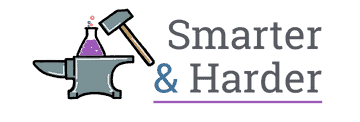In every classroom and workplace around the world, the most intelligent people aren’t the ones with all the answers. Instead, the most dynamic and smart people are the ones with all the questions.
Great questions aren’t just a way to learn something you don’t understand. A curious mind is one of the greatest assets a person can have. It has far-reaching benefits for personal growth, relationships, self-confidence, and much more.
Read on to see what makes great questions such a powerful tool and how best to harness them.
Why is Asking Great Questions so Important?
The ability to ask great questions is a nuanced skill with farther-reaching benefits than most people realize.
Far more than just a way to pick up information, asking great questions can:
- Lead to better connections and stronger relationships
- Help you to improve as a learner
- Unravel assumptions and give you a new perspective
- Set and enforce personal boundaries
- Earn the respect of those around you
- Bring the joy of a curious approach to life
A person who questions isn’t simply someone who doesn’t know something. Instead, a person who questions is an enthusiastic explorer of life, one who takes joy in growing, discovering, and becoming.
Let’s take a closer look at some specific ways that asking good questions can make a huge difference in your life.
Learning and Growth
There are many great types of questions to ask, but one of the most universally familiar are the questions we ask in the learning process.
In a classroom setting, the students who learn and progress the most over the course of a semester are the ones who thoughtfully engage with the material and indulge their curiosity. They develop their thinking and knowledge by asking both highly specific and open-ended questions about the material.
As we’ve talked about before, learning shouldn’t end when we leave the classroom. Learning is a lifelong process that creates bountiful opportunities for joy, success, and progress. As long as we remain on this path, questions continue to be our most essential guide.
Empathy and Compassion
The value of asking questions is not limited to the gathering of knowledge. Instead, it extends to our relationships and how we connect with others.
Questions help us to be better active listeners. By shifting listening from an activity of passively consuming to one of engaging, encouraging, and interviewing, we come to understand people better. We can fully grasp where they’re coming from, what matters to them, and what they need.
With the increased insight and compassion of asking people questions, we can build rapport and healthier connections with friends, romantic partners, and family.
Becoming an interviewer and asking thoughtful follow-up questions when others speak opens roads to deeper human connections.
Challenging Existing Thinking
Sometimes the purpose of a question is not for you to learn the answer to it. Sometimes the purpose of asking a question is to encourage yourself or others to think.
For instance, imagine someone telling you something like, “We have to do it this way. That’s the way we’ve always done it.” It may be a good opportunity for a question like, “Why is that the way we’ve always done it?”
By asking questions like this, you allow yourself and the other party to reassess old thinking. Maybe there’s a good, logical reason we’ve always done it that way and should continue to do so. But just as likely, there might be a better way that makes more sense today.
The same goes for assumptions. Like most animals, humans are hard-wired to make quick judgments to assess other people and situations. In large part, this intuitive thinking is a helpful tool that helps us navigate our lives efficiently. But efficiency and accuracy are two separate things. So it is often wise to challenge your assumptions, think them over carefully, and find out if they bear weight.
4 Ways to Start Asking Better Questions
There is no secret magic to being someone who asks great questions. It comes down to engaging your natural curiosity often and without fear.
Taking the chance to ask questions is more important than someone else answering them. You have nothing to gain from the questions you don’t ask and everything to gain from those you do ask.
Every day holds countless opportunities to better engage with the world around you through the questions you ask. All it takes is to spot those opportunities and take them often!
Below are a few tactics that will help you think about how to ask more questions and come up with good questions to ask.
1. Indulge Curiosity With Enthusiasm
We don’t go to school only to learn but to learn how to learn. Studying the impact of irrigation on the growth of Mesopotamian society when you were in high school may have seemed entirely useless. But it was, in fact, only mostly useless.
The answers to your questions are not the only reason for asking them. Hot facts about ancient Mesopotamia have rarely changed anyone’s life. The good news is not every bit of knowledge we pick up needs to be game-changing.
Each new thing you learn about the world deepens your understanding and gives you new mental connections. Each good question you ask is a chance to continue growing.
So keep asking all the questions that pop into your mind, even and especially beyond the classroom. Indulge your curiosity. You will not only learn new things, but you will also become a better student of your world and have fun doing it.
2. Question Yourself
There are billions of people on Earth, and each one is unique. The questions you ask about yourself help you better understand the unique person you are. You are your own unique, special basket of:
- Strengths and weaknesses
- Personality traits
- Insecurities and fears
- Personal preferences
- History and baggage
- Skills and talents
- Ambitions and goals
The better you understand yourself, the more you can build your life around the things you want and need, and set yourself up for future success.
Get to know yourself better by asking yourself simple interview questions about these and other traits. Personal growth is always easier when we approach it from reality. Work with who you are, not who you wish you were.
When you understand yourself well, the things you do make more sense. It’s easier to see why something may not have worked for you. It’s also a lot easier to plan ahead and have a much higher chance of succeeding in everything that makes life feel so hard.
3. Use What You Know to Discover What You Don’t
A question is little more than a bridge between what you currently know and what you don’t yet know. To formulate a question, you need to draw from things you already know and highlight any gaps you are trying to fill.
Leveraging existing knowledge to further your learning is a powerful tool. The more prior knowledge and curiosity you can bring into your exploration of life, the more possibilities you create for yourself.
As much as you can, try to consult with yourself when you encounter novel situations or unfamiliar information. What do you already know that can help you better understand this situation? What gaps in your knowledge does this new thing highlight and make you want to fill in?
4. Practice Active Listening
In 1936, Dale Carnegie wrote what would go on to be one of the most influential books of all time: How to Win Friends and Influence People. Its thesis is as simple as it is meaningful:
People want to be heard and appreciated. Everyone wants to feel that their existence is recognized and valued by others.
It turns out to be remarkably easy to give this gift to people by asking them great questions.
Next time you’re at a happy hour or fancy cocktail party, try this. Pick someone to talk to, and give them your full attention. Listen to what they say, and ask thoughtful questions that allow them to tell you more.
You can see the change in someone’s demeanor as they open up about a topic they care about. This tactic is also a quick way to learn that everyone you meet has something new to teach you.
Give people room to share more of their stories with you, and you’ll both be better for it.
Keep Questioning, You Wonderful Wonderer!
There you have it — everything you need to start going deeper with your questions and exploring your world as a curious observer. This guide should have given you some guidance on how to ask questions that expand your mind and your world.
It’s time to get out there and try putting your open questions to work. Whether you ask one question today or many questions, all that matters is that you take joy in probing your world with curiosity and taking an interrogative spirit with you wherever you go!

